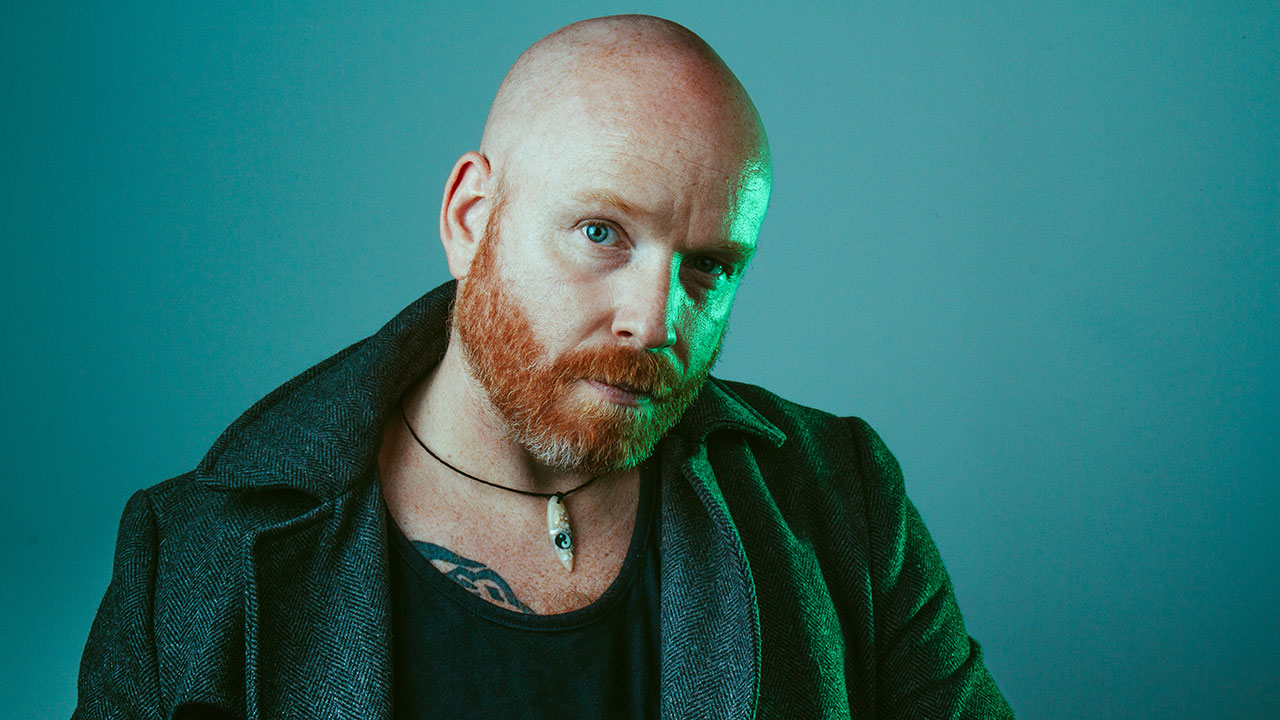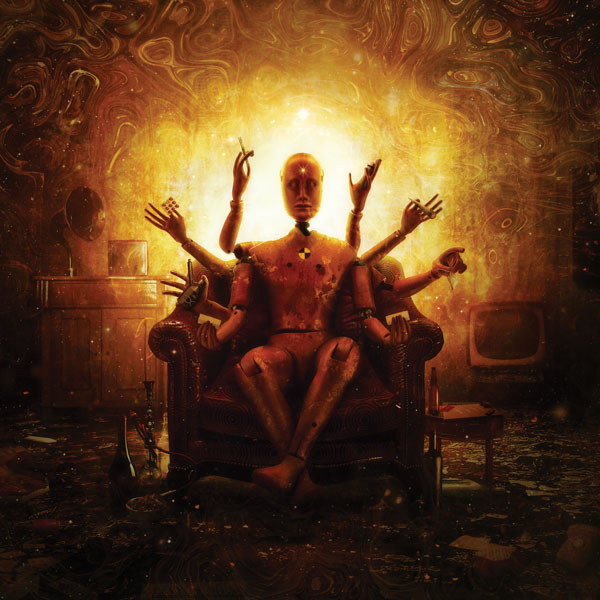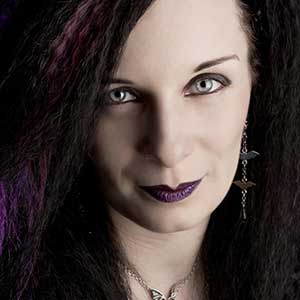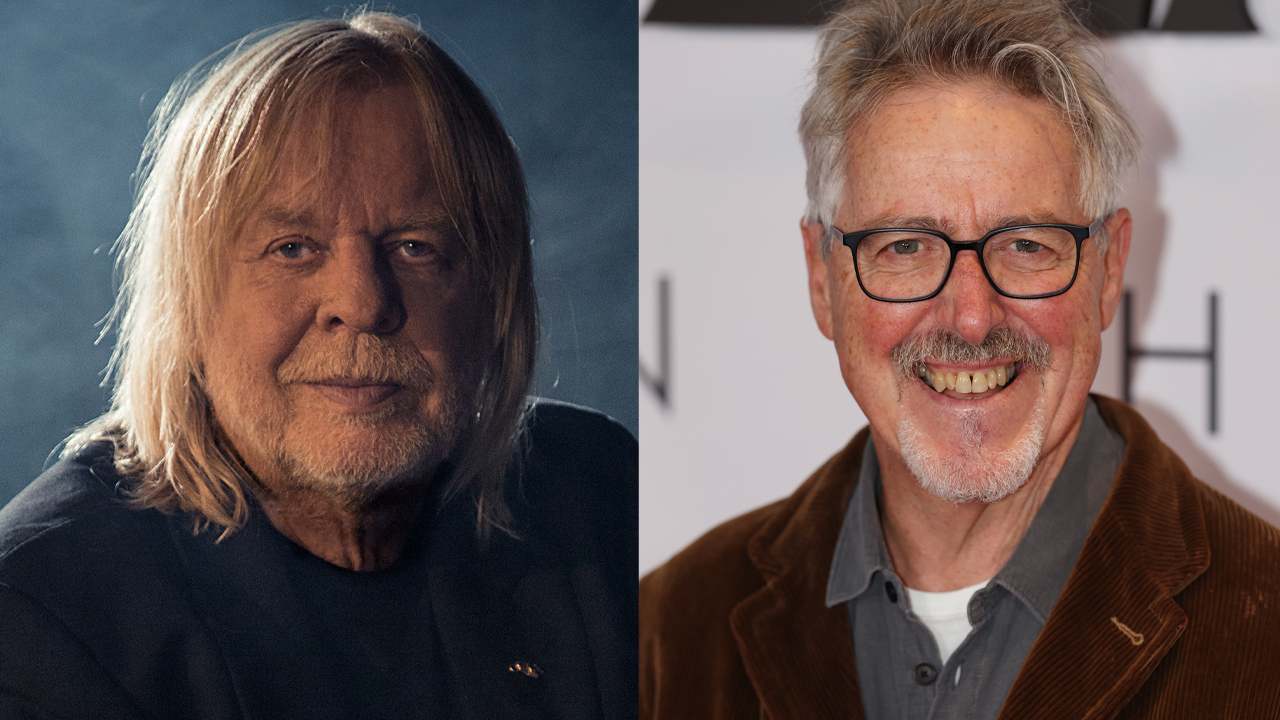“I’ve taken a difficult period of my life and turned it into a positive"- Antimatter come clean on Black Market Enlightenment
Black Market Enlightenment is one of Antimatter's darkest and most honest recordings to date

Select the newsletters you’d like to receive. Then, add your email to sign up.
You are now subscribed
Your newsletter sign-up was successful
Want to add more newsletters?

Every Friday
Louder
Louder’s weekly newsletter is jam-packed with the team’s personal highlights from the last seven days, including features, breaking news, reviews and tons of juicy exclusives from the world of alternative music.

Every Friday
Classic Rock
The Classic Rock newsletter is an essential read for the discerning rock fan. Every week we bring you the news, reviews and the very best features and interviews from our extensive archive. Written by rock fans for rock fans.

Every Friday
Metal Hammer
For the last four decades Metal Hammer has been the world’s greatest metal magazine. Created by metalheads for metalheads, ‘Hammer takes you behind the scenes, closer to the action, and nearer to the bands that you love the most.

Every Friday
Prog
The Prog newsletter brings you the very best of Prog Magazine and our website, every Friday. We'll deliver you the very latest news from the Prog universe, informative features and archive material from Prog’s impressive vault.
A man in stained clothing awakes in a sparsely-furnished bedsit. His head still hurts from yesterday’s excesses. If he can just make it through the day without using, he’s taken his first steps towards sobriety. But he can’t face up to his habit: he gives in and the cycle of his addiction continues.
The opening scene of Antimatter’s video for The Third Arm could have been taken from mainman Mick Moss’ own life. Between the ages of 16 and 21, the Liverpudlian singer-songwriter was addicted to street drugs, which eventually led to a complete mental breakdown. He explores this five-year period on the melancholic project’s seventh studio album Black Market Enlightenment: a poignant journey through his soaring highs and crashing lows.
“It was weird [filming the video] but I love it,” Moss admits. “I’ve been able to take a difficult, horrendous period of my life and turn it into a positive. I didn’t shy away with the album cover either: that image is a sarcastic view of me and my life. I knocked it all in the end just after 2000 and it’s been 18 years for me. I look back now and I feel sorry for myself.”
Moss isn’t the first progressive musician to have been drawn to mind-expanding substances, and he’s unlikely to be the last. Drugs have long played a creative role in the world of modern music. It’s hard to imagine what The Beatles’ playful Sgt. Pepper’s… universe, Hawkwind’s swirling space rock, or Pink Floyd’s more ‘experienced’ work might have sounded like without a tab, sniff or toke. Each vibrant lyric, slinky bassline and otherworldly melody holds a message that’s been passed down to subsequent generations. The teenage Mick Moss took this message to be one of approval as his musical tastes shifted from metal to psychedelic and progressive sounds.
“I was smoking cannabis from the moment I woke up until the moment I went to sleep, and I was dropping acid maybe two or three times a month. That went on for five years,” he reveals. “Cannabis opened up a valve in my brain and put me in a relaxed state. When I tried LSD, it was like that times 100. It was the state I wanted to stay in. I couldn’t be bothered with sobriety; that was just shit. I even took one of my GCSEs on LSD and it was the best fucking grade I got!
“But as with anything, you can’t just bang it every day and there was no message like that in the music. Jim Morrison didn’t sing, ‘Break on through to the other side (but only do it once a month)’! If you fast forward to ’69, those original spokespeople were quiet. Syd Barrett, Peter Green [Fleetwood Mac] and Roky Erickson [The 13th Floor Elevators] had fried themselves… this is all mentioned in [Black Market Enlightenment’s final song] Liquid Light. Nobody was saying, ‘We got it wrong and we realise that thousands of kids listened to what we said.’ So those records continue playing for future generations to hear and take as a seal of approval.”
Despite the heavy topics, Moss comes across as upbeat. His banter is interspersed with throaty chuckles, often as he laughs at his own reactions. But this cheerful exterior hides a troubled past that he’s only hinted at on previous albums. Throughout our interview, he chooses his words carefully to make sure that he’s fully understood. Several times, he even points out that Black Market Enlightenment is a commentary of his journey rather than a criticism of the path others may choose to follow. He’s refreshingly open about his source material at a time when many of his peers prefer to shy away from revealing too much about the more personal aspects of their inspiration.
Sign up below to get the latest from Prog, plus exclusive special offers, direct to your inbox!
In Black Market Enlightenment’s raw lyrics, he explores the paranoia and dissociation that the songs of his youth failed to warn him about. It takes the listener on a personal journey from spiritual enlightenment to mental breakdown. There’s no happy ending, just the unspoken knowledge that he eventually made it out the other side. In fact, it was during these uncertain times that he began crafting the music that eventually became Antimatter and gave his life new meaning.
Unlike the project’s recent albums, which have mostly seen Moss digging into his extensive archive of ideas, he wrote this one from scratch. The results take him firmly out of his comfort zone with the bulk of the songs composed on keyboard and electric guitar rather than his trusty acoustic. Although album opener The Third Arm could be the sonic sequel to Stillborn Empires from 2015’s The Judas Table, the remaining eight tracks follow a more electronic path with nuances of krautrock, the occasional echo of doom metal, a pinch of darkwave, a touch of 80s saxophone, and some delicious Middle Eastern flavours on Existential. The latter uses a particularly proggy instrumental and was inspired by Peter Gabriel’s The Last Temptation Of Christ, and Hans Zimmer and Lisa Gerrard (Dead Can Dance)’s soundtrack for Ridley Scott’s Gladiator.
“I had this sound in my head and I asked Andre [Simonian, from The Beautified Project] if he could find me an Eastern bowed instrument. Vardan Baghdasaryan is one of the most famous Armenian qamancha players, but Andre had no idea this was who he was dealing with until he saw his face!” Moss explains of the unusual collaboration. “The way the qamancha is played, you don’t rest on any single note; it’s all over the fucking show. If you’ve got a 30-second solo, the amount of notes is outrageous. I’d love to play it live but really I can only ask the guys [in my live band] to jump on the less ridiculous pieces.
“These aren’t straightforward songs and I tried to push the boundaries of what I’m doing in as many ways as I could. I succeeded… but at the cost of my own sanity!”
Since 2007, Antimatter has been a one-man project with a revolving cast of collaborators, which has included both former and present members of Anathema. Black Market Enlightenment is no exception with multi-instrumentalist Daniel Cardoso in charge of mixing, but there are some new faces among the guests as well. Moss’ distinctive vibrato vocals – as heard on Astral Architecture, the recent single from iamthemorning’s piano virtuoso Gleb Kolyadin – are complemented not only by the warm tones of local singer Carla Lewis, but also by Aleah Starbridge’s beautiful chants. The South African vocalist and Antimatter fan has popped up on several Swallow The Sun and Amorphis recordings, and was also part of the Swallow The Sun/Nightwish side project Trees Of Eternity. Although Starbridge died unexpectedly in 2016, she had been lined up to guest on Black Market Enlightenment. With a little help from her former partner, Swallow The Sun guitarist Juha Raivio, Moss was able to honour her memory with a haunting guest appearance.
“I’ve always been perversely and artistically interested in posthumous appearances. It would really piss me off if I got hit by a tram and [my unreleased songs] just died with me,” admits Moss. “Juha sent me this piece and it was perfect for Existential, it’s almost like she recorded it for the song. I wove the qamancha in and it sounds like they’re doing this trade-off. I was glad I was able to do this for Aleah, and Juha is over the moon with it.”

The more Moss reveals about the album, the more it’s clear that he’s really gone the extra mile. His ambition extends beyond the songs as well: it’s Antimatter’s first independently released studio album, a decision he partly attributes to the success of last year’s DVD Live Between The Earth & Clouds.
“I’ve been watching small bands self release via Facebook. People are doing things themselves and something inside me felt it would appeal,” he says. “I guess there’s a control freak in a lot of creative people and there is one in me. I don’t like to out-source jobs. The record company [Prophecy] did a great job and they wanted me to carry on, but I thought I’d do it this way, for better or for worse.”
Is this now his preferred route for future releases too?
“Ha! Ask me in six months!” he says, laughing. “I’ve ended up having to do 14-hour days every day without a day off. I’m kind of shell-shocked and I feel like I’ve been down the rabbit hole for 18 months. I’d love to be able to hear the album with fresh ears. I’ve been asking friends, ‘What’s the album like?’ I have no idea what I’ve just done!”
Moss has made life even tougher for himself by releasing the physical CD in three different packages. In addition to the standard album, there’s a two-disc and special edition version of Black Market Enlightenment available, both of which come with the bonus DVD, Finding Enlightenment. This extra disc includes an in-depth documentary that explores the story behind the album as well as the promo for The Third Arm. The extended editions also have expanded liner notes and reproductions of watercolours that Moss painted during the 90s.
“People are interested in something that’s exclusive and really personal, and all the way through the process, I wanted to do it in three tiers. The special edition has handwritten lyrics and I’m even doing a hand-numbered card with a section of guitar string from one of the instruments played on the album,” he explains. “The idea is that if you watch the documentary and read through the lyrics, you’ll realise what every song is about. It’s quite personal to speak about it to the world, but
I have in the hope I can help people understand what the album is about.”
Moss’ journey so far has been an incredibly emotional one and it’s not over yet. Over the summer, Antimatter played in front of thousands at Germany’s Night Of
The Prog festival and, earlier this month, the live band finished up the first part of the Black Market Tour. The circuit has taken them around Europe although their itinerary only featured one UK show at London’s intimate Black Heart. They’re not the only UK progressive act to attract much larger crowds on the continent, but in their case a reluctance to tour the UK isn’t entirely the fault of
local audiences.
“Other bands have told me over the years, ‘The UK is shit; shitty clubs, shitty audiences,’ and that’s soaked in. I’ve thought, let’s not waste too much energy throwing something together when I feel it’s doomed for failure. That said, [our gig at] the Camden Barfly was great two years ago,” admits Moss. “I do prefer bigger clubs though because I’m not banging the head of my guitar into [bassist] Steve Hughes’ shoulders and I’ve not got [drummer] Fab Regmann’s cymbals literally three feet away from the back of my head. But I wasn’t doing anything before Antimatter so any size audience or club is a bonus. There’s no ego here: I’ve done living room concerts in front of 15-20 people with an acoustic guitar and I’ve played in front of thousands. It’s all good.”
With the second leg of the tour due to kick off next spring and rumours of some festival appearances on the horizon, there’s no risk of Moss being bored. He’s also been recording guest vocals for a handful of secret projects and is starting to think about a new album with electronic side-project Sleeping Pulse. Then there’s his 25-song archive to go through.
“Music has been my best friend my whole life and it’s a fantastic, positive distraction technique.” He adds with an audible smile, “Besides, the Mick Moss of 2018 is a helluva lot more grounded than the Mick Moss of 1996.”
Prog wonders whether that young man in his bedsit would have ever dreamed of this.

Contributing to Prog since the very first issue, writer and broadcaster Natasha Scharf was the magazine’s News Editor before she took up her current role of Deputy Editor, and has interviewed some of the best-known acts in the progressive music world from ELP, Yes and Marillion to Nightwish, Dream Theater and TesseracT. Starting young, she set up her first music fanzine in the late 80s and became a regular contributor to local newspapers and magazines over the next decade. The 00s would see her running the dark music magazine, Meltdown, as well as contributing to Metal Hammer, Classic Rock, Terrorizer and Artrocker. Author of music subculture books The Art Of Gothic and Worldwide Gothic, she’s since written album sleeve notes for Cherry Red, and also co-wrote Tarja Turunen’s memoirs, Singing In My Blood. Beyond the written word, Natasha has spent several decades as a club DJ, spinning tunes at aftershow parties for Metallica, Motörhead and Nine Inch Nails. She’s currently the only member of the Prog team to have appeared on the magazine’s cover.
